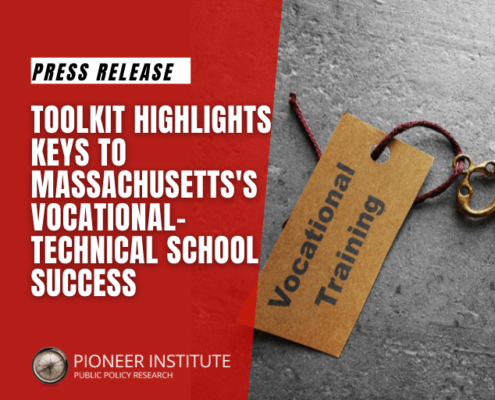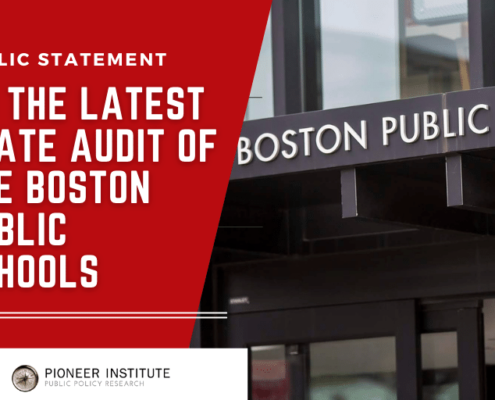A Bold New Agenda: Introducing Pioneer’s New Board Chair Adam Portnoy
/0 Comments/in Featured, News, Video /by Editorial StaffLast week, Pioneer Institute announced the appointment of Adam Portnoy, President and CEO of The RMR Group, as new Chair of our Board of Directors, succeeding Stephen D. Fantone, who recently stepped down after eight years of dedicated service. We are excited about this new stage in Pioneer’s development, and want to introduce Adam to all of you, our supporters.
In the video below, Adam shares thoughts on what inspired him to become more involved in Pioneer’s work, highlighting the Institute’s data-driven, forward-focused approach to advancing policy solutions and creating more opportunities for all. He also offers his vision for the future, building our community of supporters and increasing our public interest law activities to strengthen our policy impact – which is the core of the Institute’s new Pioneer2024 strategic plan. We hope you enjoy this chance to get to know Adam and hear his message!
Join us as we embark on this ambitious new agenda! Learn about membership opportunities.
Stay Connected!

Study: Legislators Must Answer Key Questions Before Setting Policy for App-Based Rideshare/Delivery Workers

Two Stars in a Glowing Voc-Tech Education System

Toolkit Highlights Keys to Massachusetts’s Vocational-Technical School Success

Pioneer Institute Expects That Massachusetts Taxpayers Will Be Refunded $3.2B Due To State Revenue Cap

Survey of Business Sentiment: MA Income Tax Hike Would Lead to Employer Exodus

Study Finds Pension Obligation Bonds Could Worsen T Retirement Fund’s Financial Woes

As States Compete for Talent and Families, Massachusetts Experienced a Six-Fold Increase in Lost Wealth Compared to a Decade Earlier

Book Finds Massachusetts Voc-Tech Schools Are National Model, Calls for Expansion

METCO Works Well, Small Tweaks Could Make It Even Better, Study Says

Book Reveals How Tax Hike Amendment Would Damage Commonwealth’s Economic Competitiveness

Pioneer Institute Statement on the Latest State Audit of the Boston Public Schools




